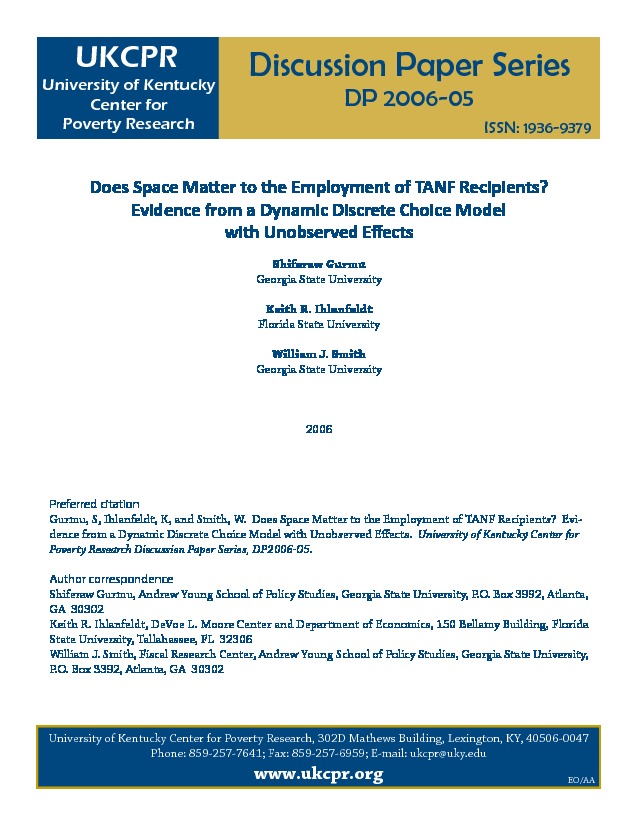We study the factors affecting the employment probability of Temporary Assistance for Needy Families (TANF) recipients using recent quarterly panel data from Atlanta, Georgia. A central focus of our study is to determine whether the TANF recipient’s proximity to job opportunity and the availability of childcare affect her probability of full-time employment. Both static and dynamic models of employment choice are estimated that control for unobserved individual effects. We estimate models separately for a sub-sample of TANF recipients living in public housing, whose residential locations can be considered exogenously determined. We find substantial evidence that individual and family characteristics (such as, the education of the recipient and the number of children and adults in her family) are important determinants of the employment probability of welfare recipients. On the other hand, spacerelated variables are found to be relatively unimportant.
Research
Welfare ReformPDF Thumbnail
